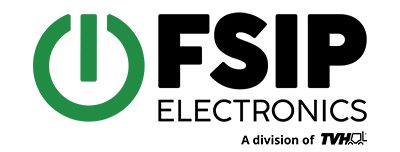What is Section 179

Diving into the United States Tax Code is never a fun experience. However, Flight Systems Industrial Products has done some heavy lifting for you regarding Section 179. This is a relatively advanced area of the tax code. It’s important that you work with a tax professional to determine if this deduction is right for your company.
Section 179 is an IRS tax deduction, which allows businesses to deduct the full purchase price of qualifying equipment purchased or financed during the 2022 tax year. Some people may remember this tax credit as the SUV Tax Loophole or Hummer Deduction. It’s important that you work with a tax professional to determine if this deduction is right for your company.
How does it work?
Most business owners know that big purchases are depreciated over time. Section 179 allows the entire purchase, of qualifying business equipment to be written off in the current tax year (up to $1,080,000). For small businesses, this deduction is a big deal. Again, we refer you to your tax accountant or Certified Public Accountant (CPA) to walk you through the Tax Code and ensure your purchase(s) meet the required standards.
Sounds too good to be true:
Section 179 does come with caps and limits. For example, the total amount written off for 2022 is $1,080,000*. However, the total equipment purchased cap is $2,700,000* for the 2022 tax year. FSIP recommends double-checking with your Accountant or CPA before making a purchase to ensure it will qualify for the deduction.

According to Section179.org, “The deduction begins to phase out on a dollar-for-dollar basis after $2,700,000 is spent by a given business (thus, the entire deduction goes away once $3,780,000 in purchases is reached).” This makes Section 179 a valid small or medium-sized business deduction.
The deduction is applicable for new or used equipment (so long as the equipment is new to you in the calendar year), as well as off-the-shelf software. The equipment must be either financed or purchase, placed into service between January 1, 2022 and end of day, December 31, 2022, and it must meet the “More than 50-Percent Business-Use” requirement. The usage requirement means that the vehicle, equipment, and/or software must be utilized for business-use at least 50% of the time to qualify for the Section 179 Deduction.
who qualifies?
During the tax year 2022, any businesses that purchases and/or leases new or used (new to you) business equipment may qualify for the Section 179 Deduction – assuming the company spends less than $3,780,000 in the tax year 2022. Reach out to your Accountant or CPA to see if your purchase(s) qualify for the 2022 tax year.
Section179.org provides a list of qualifying equipment.

How Much Can I Save?
Section179.org has you covered here, too. They have provided a calculator to determine how much your potential savings could be Please remember that the calculator is for basic estimates. Your Accountant or CPA would be able to provide cost savings guidance.
how does this apply to fsip?

Glad you asked! Many industrial-level electrical systems are, well… expensive – we get it. However, the 179 Deduction is a perfect way to balance out the high up-front cost of products such as the Xtender Battery Regenerator, exclusively distributed by FSIP. The Xtender is an all-in-one discharging, cycler, and recharging unit for lead-acid batteries, which makes it the perfect system to have on hand for warehouse work. This fully automatic device breaks down lead sulfate crystals using a patented high-frequency shark pulse technology to restore lost battery capacity. The Xtender lives up to its name with the ability to restore and recharge. See it in action here! For more information email xtender@fsip.biz.
Disclaimer:
FSIP and its’ owners, affiliates, suppliers, and partners are not tax advisors. This post is not intended to offer any tax advice. Information provided within this blog is for illustrative purposes only, and accuracy is not guaranteed. Please consult with a qualified tax professional concerning your specific situation.
FSIP is not responsible for faults with tax returns. Check with your Accountant or CPA before making any tax decisions. Not qualifying for Section 179 is not grounds for a refund. The referenced numbers are subject to change without notice by the IRS.
Additional resources:

